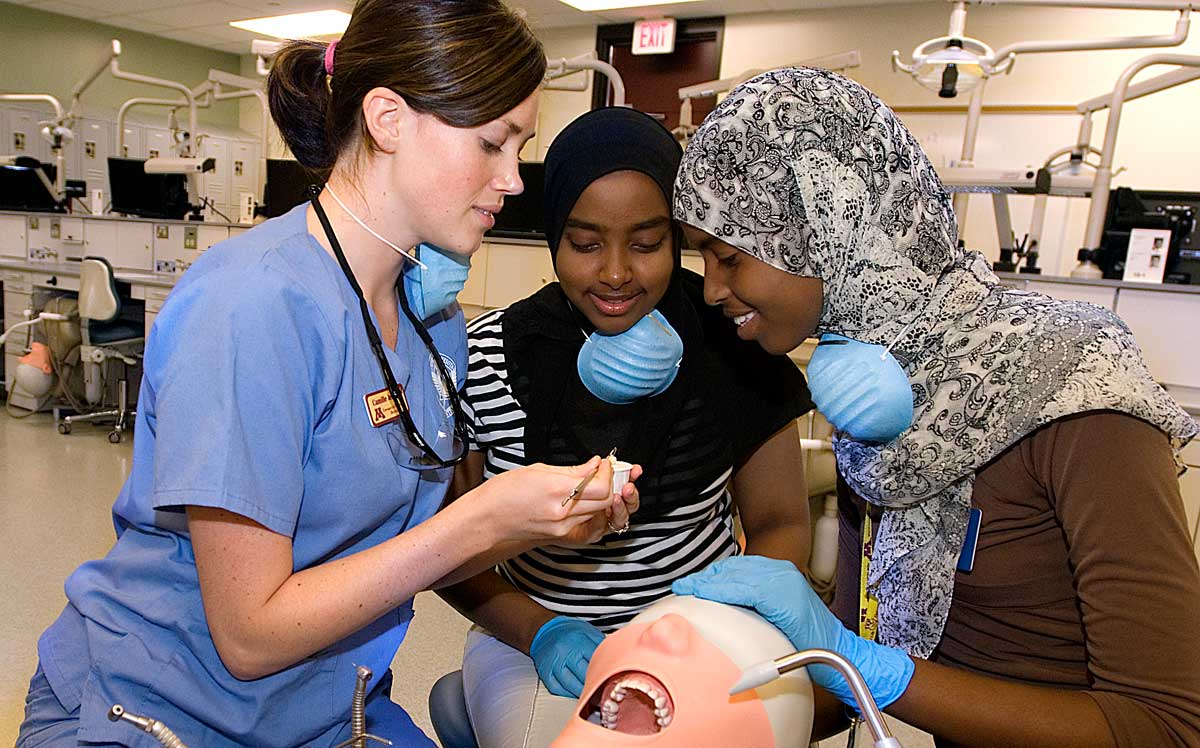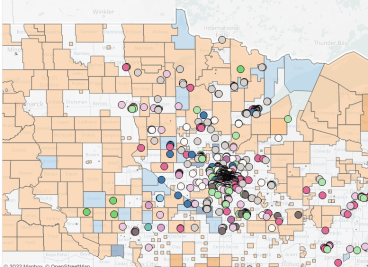Clinical Training and Interprofessional Education

Transforming how we prepare the next generation of health care professionals
See how health sciences learners:
Train together | Solve problems together | Develop real-world working relationships
Contact: Office of Academic Clinical Affairs
Training together
Today’s health care challenges cannot be solved from one viewpoint or with one kind of expertise. They require different perspectives and different disciplines to come together. That’s why our health sciences students learn together, solve problems together, and develop real-world working relationships.

Clinical Training Partnerships Across MN and the US
The University has 2,500+ clinical training partnerships across Minnesota and beyond, many of them in rural or underserved communities. These serve as training sites for our thousands of health science learners across three system campuses.
Solving Problems Together
Our learners practice interdisciplinary care in order to tackle the real-world, truly difficult health care problems.
Developing Real-world Working Relationships
Providing interprofessional learning opportunities and experiences that allow learners to deepen their knowledge and develop the skills they will need to effectively contribute to team-based, interprofessional collaboration as future health professionals.
Interprofessional education and training across OACA
Discover opportunities to engage and see interprofessional education and training opportunities across OACA.
Center for Bioethics
Helping students, professionals, policy makers, and the public confront and understand ethical issues in health, health care, new biomedical technologies, the environment, and the life sciences.
M Simulation
Learners use simulation to develop clinical expertise by practicing skills, applying knowledge, and learning from their mistakes without risk to actual patients.
Center for Global Health & Social Responsibility
The Clinical and Translational Science Institute (CTSI)
Offering many career development programs for undergraduate, graduate and professional students.
Institute for Health Informatics
Institute for Molecular Virology
Seeking to improve the health of the citizens of Minnesota through education, outreach, and research (basic, clinical, and translational).
Masonic Cancer Center
Creating a collaborative research environment focused on the causes, prevention, detection, and treatment of cancer.





